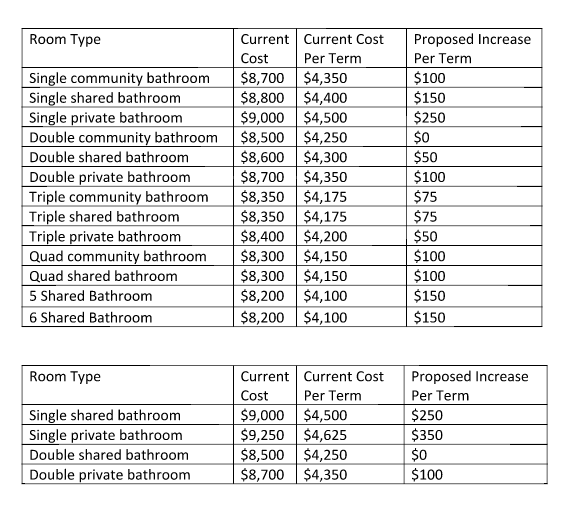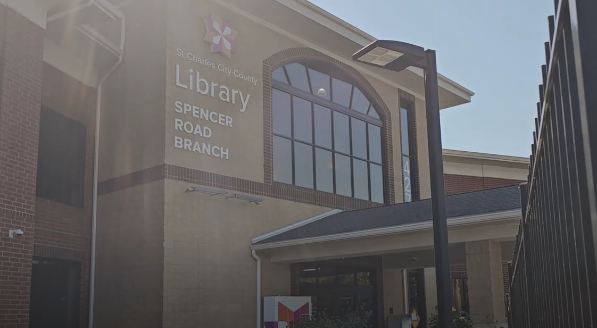Phil Brahm | Lindenlink Editor
Nov. 29, 2016; 7 a.m.

Photo by Nao Enomoto
Lindenwood students may have to pay extra for their preferred housing option next fall under a plan proposed by the university.
The current system charges all students the same flat rate for housing, regardless of whether they live in a dorm, off-campus apartment or house.
But a new plan, announced at a Residential Hall Association meeting Nov. 22, would base housing costs on the number of amenities associated with each of the university’s various living arrangements.
“Let’s say you are living in a quad in Cobbs and have to share a community bathroom,” said Terry Russell, director of Residential Life. “Right now, you’re paying the same amount for that room as someone living over in housing who has their own bedroom, private bathroom, stove, refrigerator, living room and kitchen.”
The rate increases could range from $100 to $750 a year; rates for some housing options, such as a double room with a community bathroom, would remain the same.
[su_heading size=”18″ margin=”14″]Proposed Cost Differentation[/su_heading]

Graphic by Carly Fristoe
[su_divider top=”no” size=”4″]Women’s Soccer[/su_divider]
Several other universities in the greater St. Louis area, such as St. Louis University and Maryville University, use differentiated costs systems for their student housing.
Lindenwood’s plan compares favorably with those; upgrading to a single room from a double room at Lindenwood is as much as 71 percent cheaper in some cases.
The revenue generated from the new system would be used to make improvements to several of the university’s residences. More than $30 million is brought in each year under the current system.

Photo by Phil Brahm
Those improvements would include remodeling campus houses and adding kitchenettes to dorms.
Russell said the university is considering a variety of options, but a differentiated system needs to be in place first.
“What we are trying to do is make it fair across the board so that the students that are living in residential halls with less amenities aren’t subsidising those who live in the houses or the off-campus apartments,” he said.
The details of the proposal will continue to be discussed at Resident Hall Association meetings during the spring semester, Russell said. While the dates and times for future meetings have not been set, he encourages all students to attend.
“What we are trying to do is get everyone’s feedback and see how to proceed with this,” Russell said. “We want to be able to justify this increase as best we can.”







